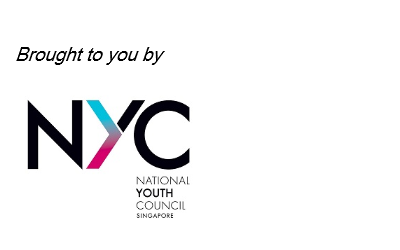BRANDED CONTENT
Self-care nights and peer support: How young S’poreans are breaking the burnout cycle
From conversation-sparking card games to mentorship programmes, the National Youth Council has its finger on the pulse of youth concerns, including mental health
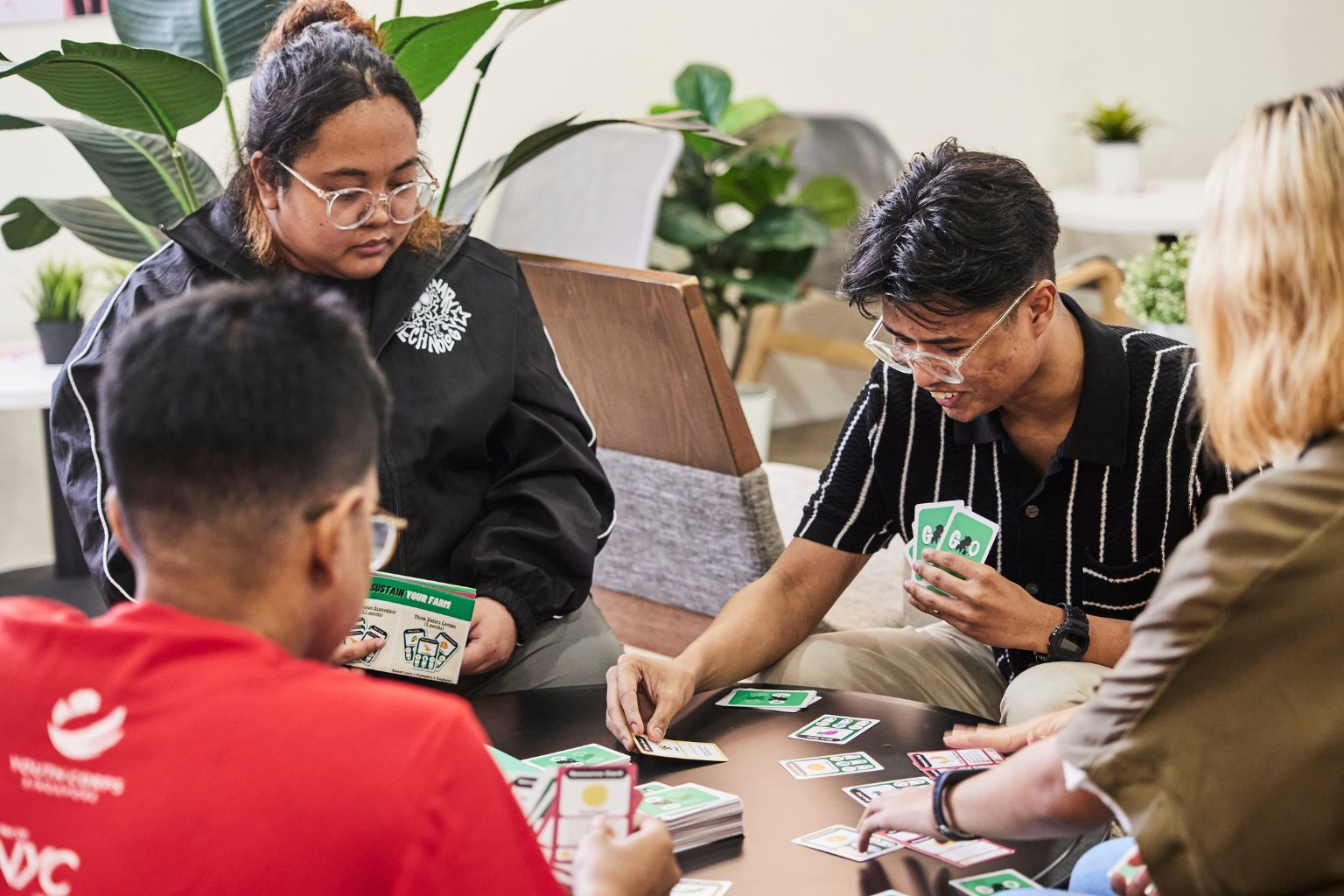
After experiencing burnout from juggling work and internship commitments, Mr Muhammad Irsyad Jamaruddin (third from left) found support through Project Re:ground, an initiative led by Youth Corps Singapore, a division of NYC that champions youth volunteerism. PHOTO: SPH MEDIA
Follow topic:
What began as a typical workday turned into a moment of realisation for Mr Muhammad Irsyad Jamaruddin. He realised he had reached a tipping point.
The 21-year-old had been burning the candle at both ends. After graduating from Republic Polytechnic earlier this year, he took on an internship by day and a part-time job by night while waiting to start his National Service (NS) in October.
“I wasn’t feeling well but still powered through – until I vomited at work. That was when I realised my body couldn’t take it anymore,” he shared.
His reasons for pushing himself hard are not uncommon among his peers. He wants to strengthen his university application, and ease the financial burden on his father, who in his eyes was “overworked”. But little did Mr Irsyad realise that he, too, needed a break.
“I felt really empty during that time, and I would cry almost every night because it was so draining. But I told myself, ‘I have to do this. I have to keep going,’” he said during an interview.
His struggle is far from unique. Parents, counsellors and young people themselves have shared anecdotally that today’s youth are under immense pressure to build professional experience – commonly referred to as “resume-stacking” – and achieve some degree of financial independence before entering the workforce.
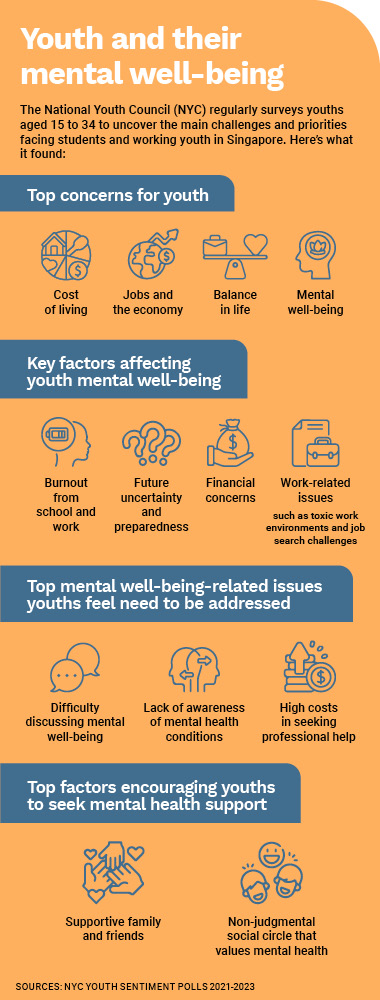
Building a supportive ecosystem
In fact, burnout from school, work and financial concerns are among the leading factors affecting youth mental well-being, according to sentiment polls conducted by the National Youth Council (NYC) between 2021 and 2023.
Recognising these challenges, NYC has adopted a whole-of-society approach to support youth mental wellness.
As it views engaging and developing youths as a truly collaborative effort, NYC is also building networks and partnerships with stakeholders across the youth sector.
This initiative is part of its broader strategy to create meaningful relationships that support various dimensions of youth development.
In Mr Irsyad’s case, he chose not to confide in his friends as they, too, are dealing with similar struggles. He worries his “emotional dumping” could dampen the atmosphere during casual get-togethers.
He also hesitates at opening up to his parents because he felt they would not understand what he was going through.
“My parents asked: ‘Why do this to yourself? Why can’t you just stop?’ The fact that they thought I was tormenting myself needlessly made me feel a little invalidated,” Mr Irsyad shared.
Their words, albeit well-meaning, reveal a generation gap that results from different life experiences.
Gamifying self-care
Mr Irsyad’s search for support led him to Project Re:ground, a Well-Being Circle under the SG Mental Well-Being Network, that is run by Youth Corps Singapore, an NYC division.
He was there at a recent themed night session called Resilience with GRO! Cards, in partnership with Growthbeans, joining 20 other young people seeking meaningful connections and respite from the bustle of their daily routine.
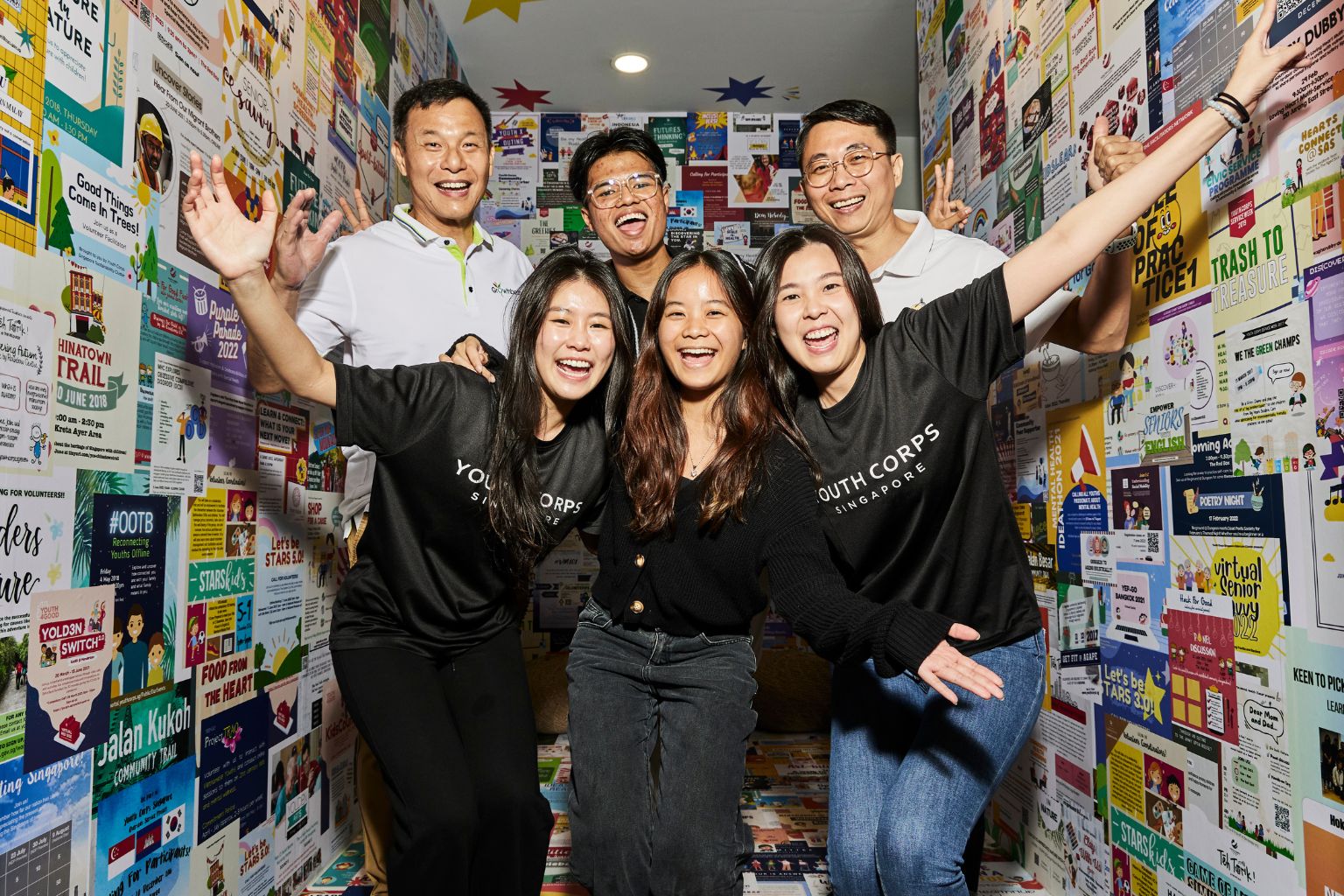
“I wanted to find new ways to support myself, especially since I had neglected self-care for months now. And with peers around me going to different units in NS, I feel quite lost and figured I could use a friend.”
When Mr Irsyad walked into The Red Box at Somerset, he expected a typical seminar, similar to other mental health events he had attended. Instead, he was surprised to find a setup more like a board game cafe, with strangers gathered in small groups, engrossed in decks of cards.
“This format is really fun because it’s the kind of card game families would play and I got to interact with others and make new friends. It’s nice to hang out and chat in a cosy environment,” he says.
By incorporating gamification elements, the area transformed into what sociologists term a third space, a relaxed setting where youth engage in casual conversations and reflect on their well-being.
After three rounds of the game each 30 minutes long, Mr Irsyad walked away with a deeper appreciation for personal connections – an important takeaway as he prepares for his transition to NS.
“Since I’m going to be living with other people for two years, maybe I can make an effort to connect with my bunkmates. I always feel mentally refreshed after having a nice conversation with someone.”
Launched in Sept 2021, Re:ground @ Dungeon is part of the larger Project Re:ground initiative that allows youth to take ownership of issues such as mental well-being, develop youth-centric solutions and mobilise others through peer support programmes.
It offers a dedicated space for self-care, with youth leaders and volunteers running programmes. Over 1,600 youths from diverse backgrounds have visited Re:ground @ Dungeon in the past three years.
Peer support in action
Re:ground @ Dungeon also provides a safe space at The Red Box every Thursday evening, offering youths another respite far from the madding crowd.
Some youths prefer to unwind alone, while others speak to community peer supporters like Ms Glyn Goo. One of 60 volunteers involved in these weekly sessions, she sees herself as a bridge between youths and mental health professionals.
“Youths might be intimidated by the idea of seeing a psychologist. There’s still this fear of judgment. But as a peer supporter, I’m here as a ‘friend,’ so I believe it’s more comfortable for youths to approach us and talk to us,” she shared.
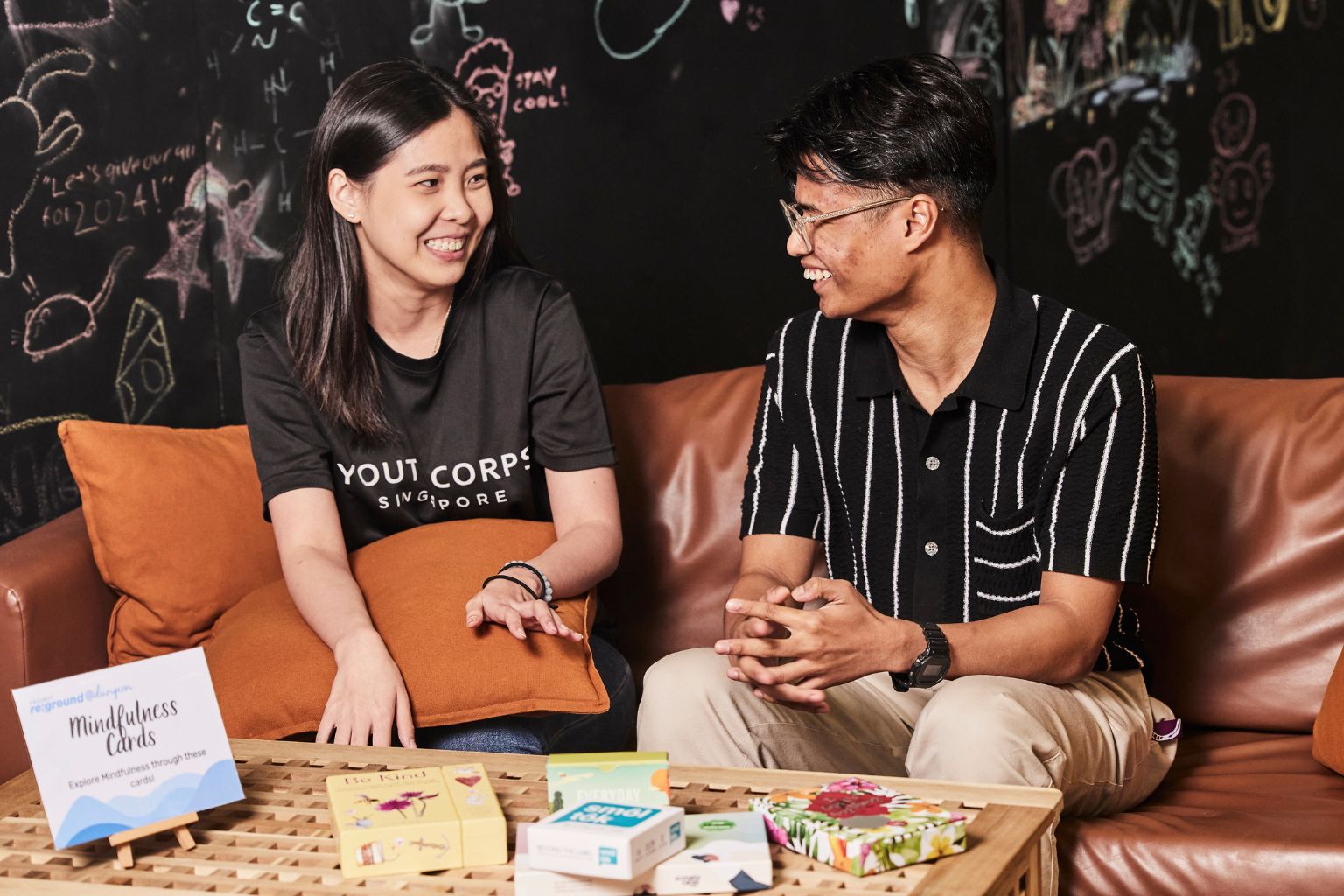
As a 29-year-old who had a full-time job and is now balancing part-time studies with part-time work, Ms Goo understands the pressures today’s youth face.
“Because I can relate to them, I can find ways to support them, like sharing about time management skills. Most importantly, they know they’re not alone in their struggles,” she explained.
Ms Goo points out that social media often amplifies these stressors by encouraging constant social comparison, whether it is about academic success, career milestones or physical appearance, which can lead to body image issues. Some youths may also face cyberbullying and harassment on these platforms.
While Ms Goo encourages youth to seek professional help when necessary, she hopes that initiatives like Project Re:ground and peer support programmes can provide outlets for youths to be heard.
“Youths often seek understanding and not direct advice – I feel that they want to be heard and validated. I hope that by creating a safe space for them to express themselves freely, it can help to better support their emotional well-being,” she shared.
Guiding youth through life’s transitions
After receiving his A-level results four years ago, Mr Tan Wei Yarn was devastated.
Inspired by Minister of State for Culture, Community and Youth Alvin Tan’s social media post about his experiences with failure, he reached out to him.
“Minister Tan encouraged me not to give up. He also advised me to stay curious and have a growth mindset, and I was very grateful for that,” recalls Mr Tan, who is currently interning at TikTok.
This conversation led Mr Tan to Mentoring SG, a Forward SG initiative supported by NYC to make mentoring accessible to youths and support their transition from school to work.
This is important, as only one in four working youths feel they get enough workplace support and nearly 80 per cent believe employers should offer more mental well-being support, according to NYC’s 2023 Youth Sentiment Poll.
Mr Tan’s mentors helped him polish his resume and referred him for an internship, which enabled the 22-year-old to “get a foot in the door” of the tech industry.
Along with practical guidance, the emotional support from his mentors helped ground Mr Tan, who had been struggling with burnout. In a bid to make up for his A-level results, he pushed himself to maintain a perfect grade point average (GPA) while managing co-curricular activities (CCAs) and internships.
“When I broke down in front of my mentor, she told me that she would always be proud of me regardless of my success. Her words brought me a lot of comfort,” Mr Tan says.
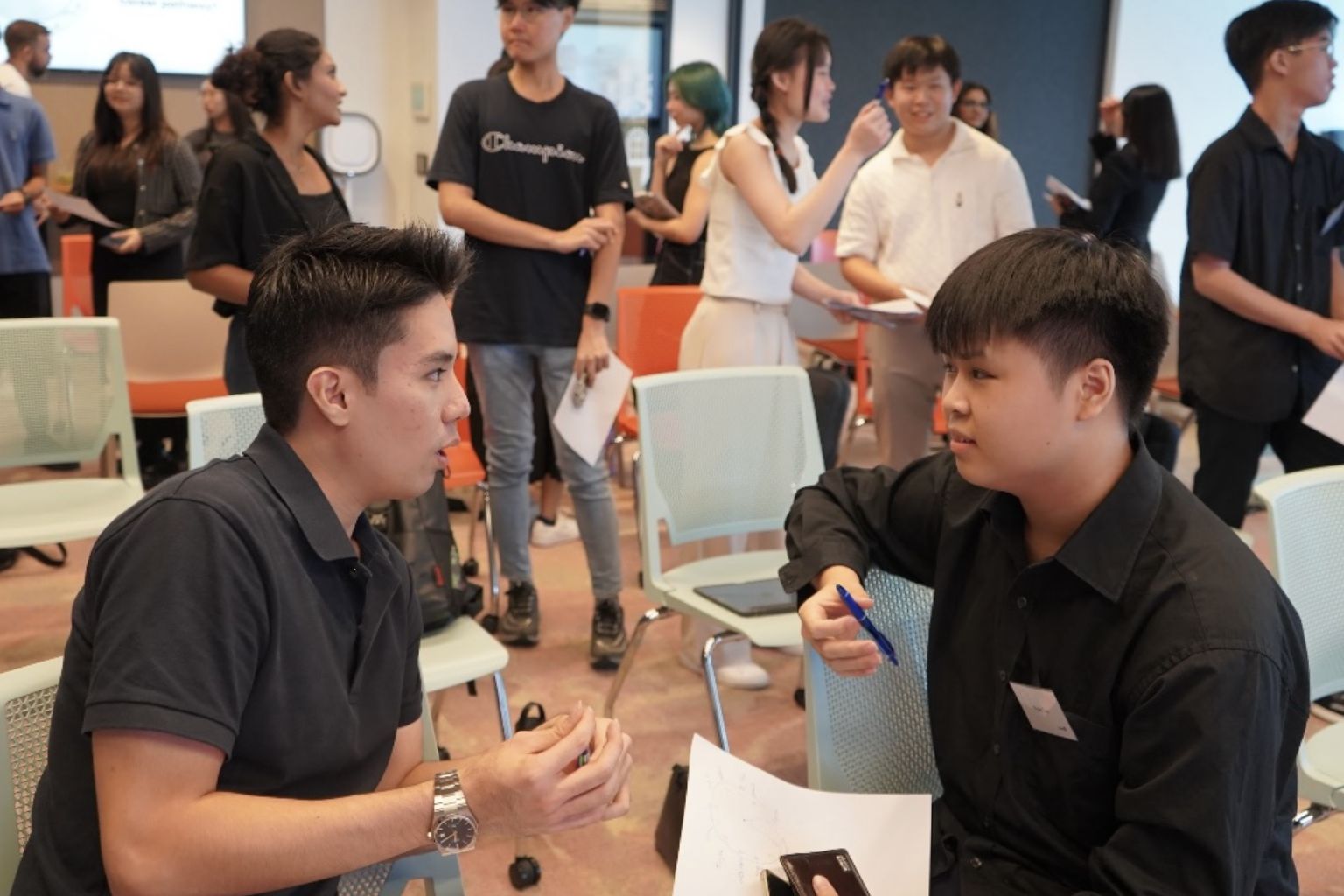
As a mentor, Ms Tang Ji Ching knows that striking a balance between giving youths faith in their own potential, while providing the feedback needed to enable greater self-awareness, plays a vital role in supporting youth mental health.
The 36-year-old member of Mentoring SG shares: “Our role as mentors is to help place their career anxieties in the right perspective. We’re here to say: Look, your first job can be the wrong job. At this stage of your career, nothing is a one-way door. Discovering what doesn’t work for you is just as meaningful as finding out what does.”
Ms Tang believes many youths feel pressured as there are now more platforms to benchmark themselves unnecessarily to their peers. She would ask her mentees questions to encourage self-discovery.

“Do they want that job or promotion to feel like they’re keeping pace, or do they truly enjoy the work? And if it’s the latter, are there alternative paths to get there? As mentors, we help youths explore possibilities they may have never considered, and Mentoring SG is a nationwide enabler of that change,” she explains.
For youths who feel they are following everyone else’s timeline instead of their own, Ms Tang advises: “Walk your own path, but know there’s no need to walk alone.”
Besides mental wellness, NYC’s youth-focused research also explores the experiences, attitudes, goals and aspirations of young Singaporeans. Learn more here.

